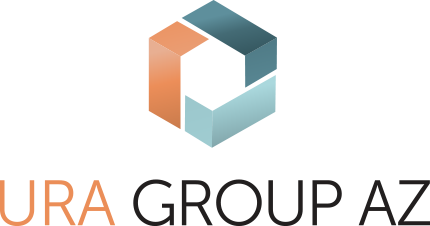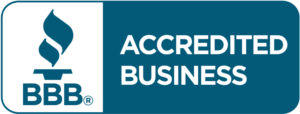Ultimately, the main goal of tax planning is to look at the current IRS laws which may allow you to further reduce your taxable income for a certain tax period. Tax planning is an important piece of the puzzle when you are looking at the success of your complete financial and retirement plan because it helps you to develop a financial strategy to reduce or change your current and future tax liabilities to help you reach your short- or long-term financial goals more quickly. Working in concert with your personal tax professional or our CPA partner, we can provide you with tax-reduction strategies.
TAX PLANNING
TAX PLANNING
Proactive tax planning allows our clients the opportunity to minimize tax burdens and build a solid foundation of tax reduction strategies that can result in years of tax savings. Perhaps the most impactful piece of retirement planning is determining your current and future tax liability and developing strategies to minimize the amount of taxes you pay in retirement. Tax planning can have a large impact on the amount of wealth you will be able to use as income, and ultimately transfer to your heirs or legacy.
 WHAT WE CAN ASSIST WITH:
WHAT WE CAN ASSIST WITH:
Roth Conversion Analysis Year-End Tax Filing Services 1040 Tax Optimization Reports Personalized Tax Reduction Reports
 WHAT WE CAN ASSIST WITH:
WHAT WE CAN ASSIST WITH:
Roth Conversion Analysis Year-End Tax Filing Services 1040 Tax Optimization Reports Personalized Tax Reduction Reports
RMDS (REQUIRED MINIMUM DISTRIBUTIONS)
It is very important to consider both taxes and RMDs in retirement planning, especially when you are deciding what to do with a 401k rollover or rollover IRA. Many people in retirement don’t realize the impact that RMDs have on the amount of money they think they have saved up to live on. When they see the actual taxes they will owe starting at age 72, they start to understand it.
Your 401k is all pre-tax dollars, so the amounts you have to draw out as Required Minimum Distributions from each account per the IRS (by each December 31st lest you owe a 50% penalty in addition to tax!) are subject to your income tax rate for the bracket you are in for that year. Even though income tax rates have been lowered for most people, it can still trigger a bigger tax bill than you were expecting.
ROTH CONVERSIONS
We can help you determine whether or not you should do 401k rollovers or IRA rollovers into after-tax like Roth IRA accounts in order to optimize your overall retirement plan. We will help you not only sort through your choices, but show you the potential future returns (and fees you may pay) by leaving your money where it is, versus moving it into another investment product. In some cases, if you are getting close to retirement, you may want to shift away from market risk altogether. We can help you compare your options based on your personal situation.
In certain instances, it may become apparent by running software and working through your tax planning issues that you may want to rollover IRA money from a tax-deferred traditional IRA to a Roth IRA so you won’t have to pay taxes in the future during retirement. There are immediate tax ramifications if you rollover tax-deferred money into another type of account—you will have to pay taxes on it in the year you do it. Additionally, the recent change to tax laws no longer allows you to change your mind later, or recharacterize the account back to a traditional IRA later. We will help you consider the taxation and help calculate what will benefit you the most in the long run.
TAX PLANNING STRATEGIES FOR RETIREMENT
“Very little changes in terms of spending after you retire, yet many of your tax deductions won’t exist anymore. People simply don’t realize how much they may be taxed on their 401k money when they withdraw it, and they’re not even sure about how RMDs (Required Minimum Distributions) work when they kick in at age 70-1/2, when you have to withdraw money regardless of whether you need it or not. A big part of retirement planning should be trying to get your tax liability down to zero. And the only way to really see how best to do that is to run software calculations based on your exact scenario.”
-Garry Madaline
RMDS (REQUIRED MINIMUM DISTRIBUTIONS)
It is very important to consider both taxes and RMDs in retirement planning, especially when you are deciding what to do with a 401k rollover or rollover IRA. Many people in retirement don’t realize the impact that RMDs have on the amount of money they think they have saved up to live on. When they see the actual taxes they will owe starting at age 72, they start to understand it.
Your 401k is all pre-tax dollars, so the amounts you have to draw out as Required Minimum Distributions from each account per the IRS (by each December 31st lest you owe a 50% penalty in addition to tax!) are subject to your income tax rate for the bracket you are in for that year. Even though income tax rates have been lowered for most people, it can still trigger a bigger tax bill than you were expecting.
ROTH CONVERSIONS
We can help you determine whether or not you should do 401k rollovers or IRA rollovers into after-tax like Roth IRA accounts in order to optimize your overall retirement plan. We will help you not only sort through your choices, but show you the potential future returns (and fees you may pay) by leaving your money where it is, versus moving it into another investment product. In some cases, if you are getting close to retirement, you may want to shift away from market risk altogether. We can help you compare your options based on your personal situation.
In certain instances, it may become apparent by running software and working through your tax planning issues that you may want to rollover IRA money from a tax-deferred traditional IRA to a Roth IRA so you won’t have to pay taxes in the future during retirement. There are immediate tax ramifications if you rollover tax-deferred money into another type of account—you will have to pay taxes on it in the year you do it. Additionally, the recent change to tax laws no longer allows you to change your mind later, or recharacterize the account back to a traditional IRA later. We will help you consider the taxation and help calculate what will benefit you the most in the long run.
TAX PLANNING STRATEGIES FOR RETIREMENT
“Very little changes in terms of spending after you retire, yet many of your tax deductions won’t exist anymore. People simply don’t realize how much they may be taxed on their 401k money when they withdraw it, and they’re not even sure about how RMDs (Required Minimum Distributions) work when they kick in at age 70-1/2, when you have to withdraw money regardless of whether you need it or not. A big part of retirement planning should be trying to get your tax liability down to zero. And the only way to really see how best to do that is to run software calculations based on your exact scenario.”
-Garry Madaline









